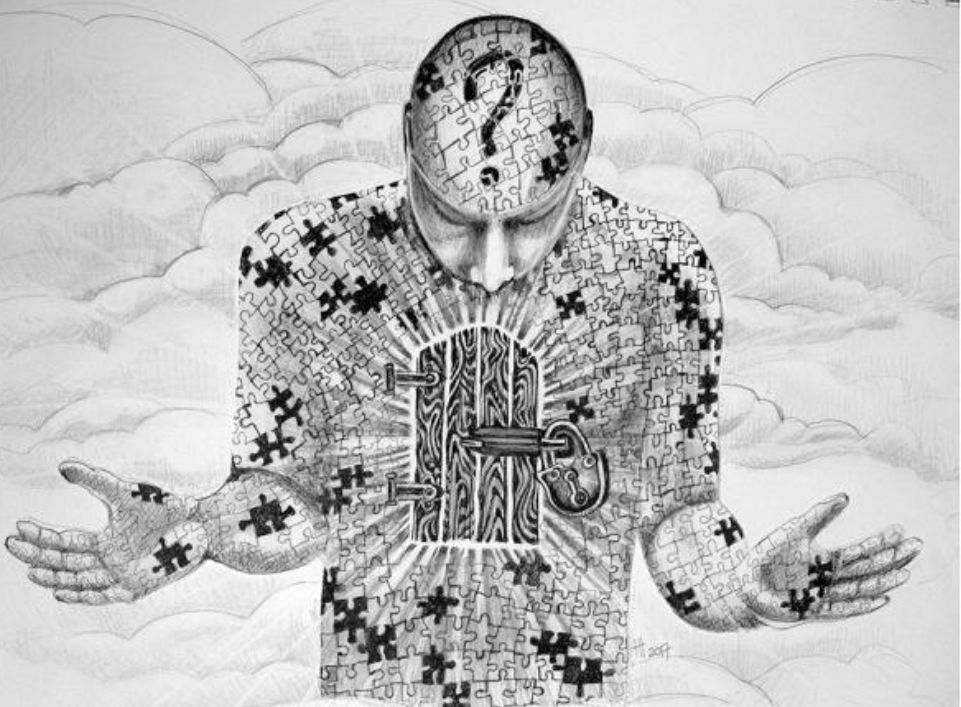“Why Didn’t You Tell Me?” Exposing the Silence Around Adoption
- ameliarenee227
- Aug 23, 2025
- 4 min read
Who in their right mind would keep a secret like this? Of course, there would be many reasons why someone would allow a human they claimed to love to believe such a lie. Even though it sounds nice when they say the decision was best for us, we, the late discovery adoptees, were never truly considered in the contemplation process. I refuse to believe this was the best decision for my mothers and me.
Sounds like I was taken from or given up by my young mother and given to a distant cousin who was a few years older. This older, distant cousin may have been forced to raise me because her being my mother made more sense than an older relative popping up with an infant. This idea is my theory because my family is still actively keeping secrets, and I’m doing my best to sort everything God reveals to me properly.
As much as I want to bash them for this decision that I completely disagree with, God has taught me an impressive amount of empathy, even towards those who I feel have caused me hurt or harm. Amidst my Sociological research, I have come across a few historical reasons families don’t tell a person they are adopted; I’ll do my best to have grace and empathy:
1. Era and Social Stigma
In the past, adoption was associated with shame and secrecy. Families feared being judged harshly.
Some believed adoption made a family appear “incomplete” or “less real,” so they pretended the adopted child was biologically theirs.
2. Desire to “Protect the Child”
Families often believed the truth would hurt the child, making them feel different, rejected, or unwanted.
Many avoided the subject altogether in hopes of sparing the child confusion or pain.
(And yet, most adoptees — especially late discovery adoptees — feel rejected and unwanted regardless.)
3. Fear of Losing the Child’s Love
Some adoptive parents worried that the child would stop seeing them as “real parents” if the truth came out.
Others feared the adoptee would seek out their biological family and “replace” them.
(This reasoning feels rooted in selfishness. Such deliberations place the parents’ emotional needs above the child’s right to the truth. People often tell adoptees that their “real parents” are the ones who raised them, but that is not accurate. Real parents are biological. Still, this truth does not cancel out the genuine, valid, and authentic love that adoptive parents may have for their children.)
4. Advice from Professionals or Agencies
Decades ago, adoption agencies and even psychologists advised secrecy, believing it would help the child “fit in.”
This advice contributed to a culture of silence surrounding adoption.
5. Personal Denial or Desire for Normalcy
Some adoptive parents longed to believe — and for others to believe — that their family was “just like any other.”
Avoiding the topic of adoption helped them sidestep their own insecurities or unresolved feelings about infertility, grief, or loss.
6. Cultural or Religious Influences
In certain cultures, family lineage is considered sacred, so adoption may be hidden to avoid judgment.
In religious contexts, some adoptive parents may interpret adoption as God “giving” them a child, and thus erase reminders of difference by keeping the truth secret.
These are just a few reasons that I’ve encountered in my research. Society has become so timid that it’s hard to tackle tough topics as boldly as preferred. We live in a culture that nurtures what needs to be firmly corrected and casts out what needs to be nurtured. Understandably, individuals and families may have experienced things that made adoption appear to be the best option, but the idea of hiding it is never the best option.
Hiding an adoption erases the origins of the adoptee. When you hide an adoption, you take the soul of the adoptee and erase everything that doesn’t fit the delusion buried in your ego. Even though your reasons may trigger empathy and understanding, your actions are harsh and open the door to severe trauma once the adoptee finds out the truth.
Unfortunately, some adoptees die never knowing that they didn’t know their birth mother. Some adopted families die before the truth comes out, leaving the adoptee to navigate grief, confusion, and an identity crisis. This topic is one of those that is easily explained and understood if you’ve lived it. Some humans have the compassion and empathy to truly grasp what an adoptee may experience when discovering late in life that they are adopted.
More information will be available on Amelia Renee’s Substack and at www.ameliarenee.com
References
Baden, A. L. (n.d.). Study on age of adoption disclosure and long-term well-being. Montclair State University. Retrieved from https://consideringadoption.com/new-study-emphasizes-damage-of-waiting-to-tell-children-theyre-adopted
Brodzinsky, D. M. (2013). A need to know: Enhancing adoption competence among mental health professionals. Journal of Social Distress and the Homeless, 22(3), 211–218. https://doi.org/10.1179/1053078913Z.0000000008
Fetters, A. (2019, July 3). What happens when parents wait to tell a child he’s adopted? The Atlantic. https://www.theatlantic.com/family/archive/2019/07/adoption-disclosure-study/594496/
Fisher, F. A. (1974, November 11). Adoptees liberty movement: On sealed records and identity. Time Magazine. Retrieved from https://content.time.com/time/subscriber/article/0,33009,944769,00.html
Jones, A. M. (1997). Issues relevant to therapy with adoptees. Psychotherapy: Theory, Research, Practice, Training, 34(1), 64–68. https://doi.org/10.1037/h0087657
Levy-Shiff, R. (2001). Psychological adjustment of adoptees in adulthood: Family environment and adoption-related correlates. International Journal of Behavioral Development, 25(2), 97–104. https://doi.org/10.1080/01650250042000131
Rosenberg, K. F., & Groza, V. (1997). The impact of secrecy and denial in adoption: Practice and treatment issues. Families in Society: The Journal of Contemporary Human Services, 78(5), 522–530. https://doi.org/10.1606/1044-3894.812
Smolin, D. M. (2021, October 25). Legacy of secrecy and shame in adoption. In S. Shapiro (Author), How an adoption broker cashed in on prospective parents’ dreams. The New Yorker. https://www.newyorker.com/magazine/2021/10/25/how-an-adoption-broker-cashed-in-on-prospective-parents-dreams
Wikipedia contributors. (2025, August 15). Adoption-related entries (Closed adoption; Adoption). In Wikipedia. https://en.wikipedia.org



Comments